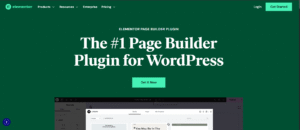In the digital age, having a website is no longer a luxury—it’s a necessity. Whether you’re a small business owner, a creative artist, a blogger, or an entrepreneur, your online presence matters. And when it comes to building a website, few tools are as powerful, accessible, and versatile as WordPress.
In this article, we’re going to take a deep dive into what WordPress is, how it works, and why it’s widely considered the best website-building platform in the world. Whether you’re a complete beginner or someone curious about moving your site to WordPress, this guide will give you a solid foundation to start with.
What is WordPress?
At its core, WordPress is a Content Management System (CMS). That means it helps you manage the content of your website—text, images, videos, and more—without needing to know how to code. Originally launched in 2003 as a blogging platform, WordPress has since evolved into a full-fledged website-building ecosystem used by over 40% of all websites on the internet.
There are two versions of WordPress, and understanding the difference is crucial:
WordPress.org vs WordPress.com
- WordPress.org is the self-hosted version. You download the software for free and install it on your own hosting server. This gives you full control over every aspect of your website.
- WordPress.com is a hosted service. You can create a site quickly without worrying about hosting, but you have limited customization options unless you pay for premium plans.
For most people serious about growing their online presence, WordPress.org is the better choice due to its flexibility and control.
Why Choose WordPress?
WordPress isn’t just popular by accident. It offers real, tangible benefits for people building any kind of website:
1. It’s Free and Open-Source
WordPress is 100% free to use, and because it’s open-source, developers around the world contribute to its continuous improvement. You just need to pay for hosting and a domain name.
2. No Coding Required
One of the biggest attractions of WordPress is that you don’t need to know HTML, CSS, or JavaScript to build a beautiful website. Thanks to intuitive dashboards and drag-and-drop builders like Elementor, even beginners can create stunning pages.
3. Themes and Plugins
- Themes control the design of your website.
- Plugins add functionality (like contact forms, galleries, SEO tools, etc.).
With over 60,000 free plugins and thousands of free and premium themes, the possibilities are nearly endless.
4. It’s SEO-Friendly
WordPress is built with clean, optimized code. Plus, plugins like Yoast SEO and Rank Math make it easy to improve your search engine rankings without being an expert.
5. Responsive and Mobile-Ready
Most WordPress themes are mobile-friendly, ensuring your site looks great on every device.
Use Cases: What Can You Build with WordPress?
You can use WordPress to build:
- Personal blogs
- Business websites
- Online portfolios
- E-commerce stores (with WooCommerce)
- Membership websites
- Booking platforms
- Forums and communities
Its flexibility makes it suitable for both small projects and enterprise-level sites.
Pros and Cons of Using WordPress
Like any platform, WordPress has its advantages and a few drawbacks. Here’s a balanced view:
Pros:
- Free and open-source
- Beginner-friendly
- Huge library of themes and plugins
- SEO-optimized
- Strong community support
- Easily scalable
Cons:
- Requires maintenance (updates, backups, etc.)
- Needs web hosting (for WordPress.org)
- Learning curve for advanced customizations
- Can be vulnerable to security issues if not properly maintained
How to Get Started with WordPress (The Basics)
Getting started with WordPress doesn’t have to be intimidating. Here’s a simple step-by-step:
- Choose a Hosting Provider: Look for WordPress-optimized hosting like Hostinger.
- Register a Domain Name: This is your website’s address, like yourbusiness.com.
- Install WordPress: Most hosting providers offer one-click installation.
- Pick a Theme: Start with a free theme or invest in a premium one from ThemeForest or Elegant Themes.
- Install Essential Plugins: Begin with basics like a contact form, SEO plugin, security plugin, and backup plugin.
- Create Key Pages: Start with a homepage, about page, contact page, and a blog section.
- Customize Your Site: Use the customizer or page builder plugins to personalize your site.
The Power of the WordPress Community
One of the underrated benefits of WordPress is its massive global community. You’ll find thousands of:
- Free tutorials
- Forums and Facebook groups
- Meetups and online webinars
- YouTube channels dedicated to WordPress
This ecosystem makes learning and troubleshooting much easier for beginners.
Is WordPress Right for You?
If you want full control over your website, the ability to scale, and access to thousands of features without paying a developer, then WordPress is likely your best choice.
It’s ideal for:
- Small business owners looking for a cost-effective website
- Bloggers and content creators
- Designers and developers who want flexibility
- E-commerce businesses
- Nonprofits and community organizations
Conclusion
WordPress is more than just a website builder—it’s a powerful tool that gives anyone the ability to create, manage, and grow an online presence. With its combination of flexibility, ease of use, and support, it remains the top choice for both beginners and professionals.
In the next blogs, we’ll explore specific WordPress topics like Elementor, membership plugins, booking systems, e-commerce setups, common troubleshooting tips, and much more.
Stay tuned, and start your WordPress journey with confidence—because with the right knowledge, anyone can build a professional-grade website.




